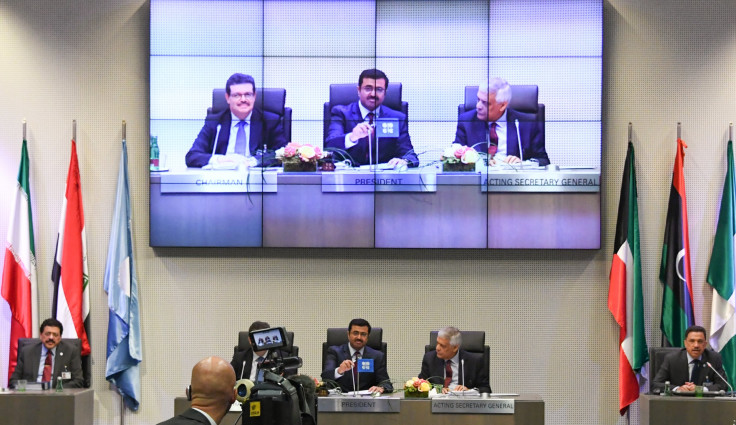OPEC Meeting 2016: Oil Cartel’s Failure To Agree On Production Ceiling Fuels Concern It Is Losing Its Relevance

OPEC failed to agree on a new production ceiling at its biannual meeting in Vienna Thursday. The absence of a deal fueled broader concerns that the once-powerful oil cartel is losing its relevance as an arbiter of world oil markets.
OPEC, which controls more than a third of the world’s oil production, rejected the idea of reintroducing a collective output limit, according to news reports. Some oil producers had proposed the cap as a way to restrain rising output that has weighed down prices in the last two years and battered energy-dependent economies. OPEC had an official production ceiling of 30 million barrels a day, but member countries effectively abandoned the cap in December as they boosted production and fed the global crude glut.
Saudi Arabia, OPEC’s de facto leader, raised output to near-record levels earlier this year, a decision that analysts largely saw as a bid to claw back market share from non-OPEC competitors — namely, the United States. Iran, now free of Western economic sanctions, set out to revive its oil industry and raise production by at least a million barrels a day.
But as rising crude supplies drove oil prices to near 13-year lows, OPEC’s poorest members — including Venezuela and Algeria — saw their economies crumble as oil export revenues vanished and budget deficits ballooned. OPEC and non-OPEC members met in April in Qatar to discuss a possible freeze on production to boost oil prices, but the talks collapsed after Iran refused to consider a freeze and Saudi Arabia abandoned the deal.
“Is OPEC still a cartel? By definition, it hasn’t been behaving like one for a little while,” Adel Hamaizia, an energy research at the University of Oxford, said in an interview earlier this week. “Geopolitics is stronger than economics.”
Saudi Arabia’s new energy minister, Khalid al-Falih, had reportedly arrived in Austria this week ready to support a plan to cap OPEC production at about 32.5 million barrels a day, the cartel’s current output. Kuwait and Qatar appeared to side with Saudi officials, but Venezuela and Algeria seemed to back Iran, which called for an output ceiling with country-specific quotas, Reuters reported.
Oil prices fell Thursday on news of the failed deal. Brent crude, the global benchmark, was lately down 1.29 percent to $49.08 a barrel. West Texas Intermediate, the U.S. oil-price gauge, fell 1.45 percent to $48.30.
The Thursday meeting did have some tangible outcomes. The cartel named Mohammed Barkindo of Nigeria as its new secretary-general. It also agreed to admit Gabon as the 14th member. The West African nation left OPEC two decades ago and will be the cartel’s smallest producer, with just 240,000 barrels a day of production.
© Copyright IBTimes 2024. All rights reserved.











